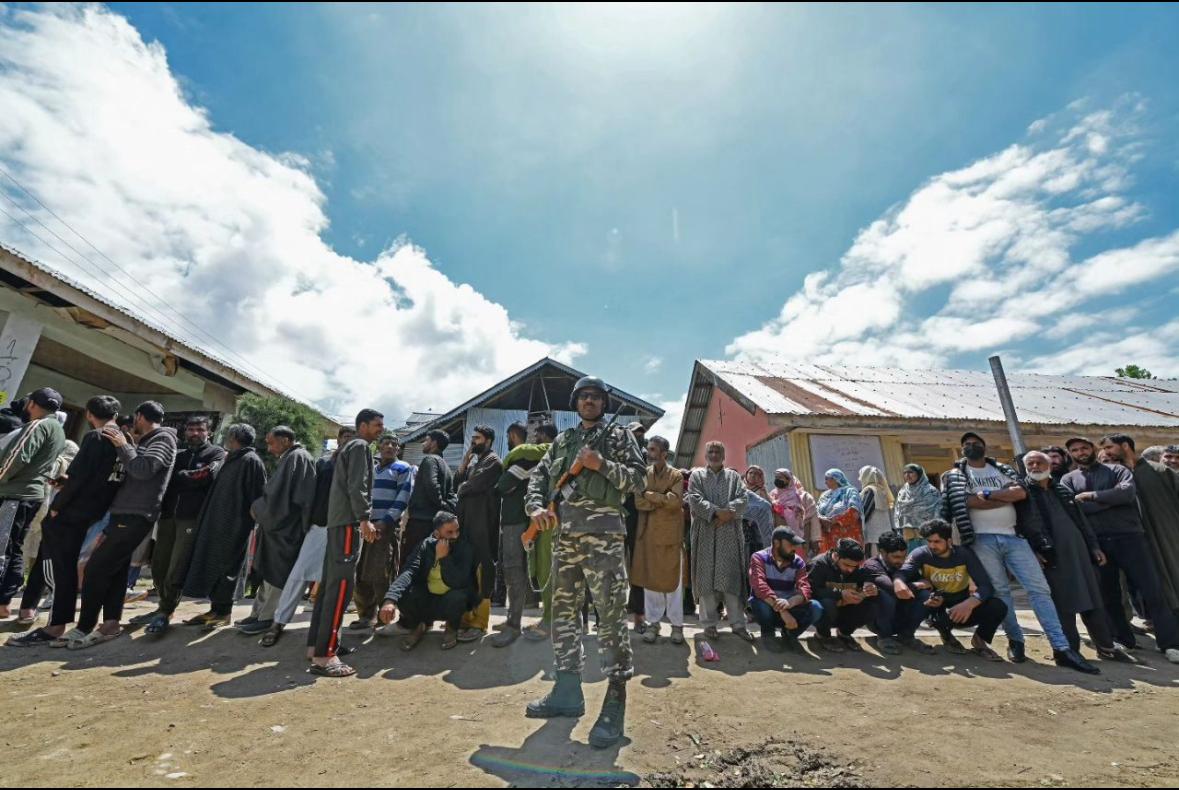Voices From the Void: J&K’s Long-Awaited Assembly Polls Stir Hope and Uncertainty

Mohammad Aatif Ammad Kanth, TwoCircles.net
Srinagar: Ghulam Nabi Bhat, a dedicated 65-year-old voter, has always prioritised casting his vote and has never missed an election. However, he now faces a dilemma about participating in the upcoming assembly elections in Jammu and Kashmir, which are the first in a decade. The last time he voted in an assembly election was in 2014, and no elections have taken place since then.
Ghulam lives in Bariagan, a village that borders Shangus. Previously, Shangus was an assembly constituency that included over 100 villages, including Bariagan. In the current election cycle, however, Shangus has been renamed Anantnag East, and Bariagan and its neighboring villages have been reassigned to different assembly seats located about 40 kilometers away. This redistricting has complicated Ghulam’s participation in the election, as he now needs to travel through three different constituencies to reach Kokernag, the new constituency associated with Bariagan.
“I don’t even know who the candidates are for the upcoming elections,” he told TwoCircles.net. “People here hardly know them. How could we when they are miles away from us, and there’s little opportunity for us to interact with them? It was only after the election dates were announced that they came around, making promises. But how can they truly understand our struggles when they aren’t part of our region? We were content with the Shangus constituency because it was close by, and we could easily visit our MLA to voice our concerns. Now, it feels almost impossible after the government included us in Kokernag.”
These elections are particularly significant as they are the first since the abrogation of Article 370. Despite a complete communication lockdown and strict measures, Indian authorities insisted that Kashmiris were content with the abrogation. Nonetheless, many prominent leaders, including former chief ministers, cabinet ministers, religious clerics, activists, and journalists, were detained. Authorities justified these actions as necessary for maintaining peace and prosperity in the union territory.
Demographic Changes, Quest for More Hindu Majority Seats
Shortly after the abrogation of Article 370, the Indian authorities established the J&K Delimitation Commission in March 2020 to increase and reshape the number of assembly seats in the newly formed union territory. The commission added six seats to the Hindu-majority region of Jammu and only one to the Muslim-majority region of Kashmir, despite Kashmir constituting more than 56% of the population and Jammu less than 44%. Normally, seat allocation follows population figures, but in this case, the focus shifted to geographical area, with Jammu covering 62% of the total area while Kashmir occupies only 38%.
Of the six additional seats in Jammu, only one was allocated to the Muslim-majority Chenab Valley, which includes Doda and Kishtwar districts. Despite Kishtwar’s large size and sparse population, and Doda’s substantial population, the region received only one additional seat. In contrast, smaller, predominantly Hindu districts like Reasi and Samba were each granted an extra seat due to their proximity to the international border, a rationale not applied to the Muslim-majority districts of Rajouri (62.7% Muslim) and Poonch (90.4% Muslim), which face more frequent shelling and firing than Samba and Kathua.
The Commission also reserved seven seats for Scheduled Castes, continuing previous practices, and nine seats for Scheduled Tribes for the first time. Notably, even districts with relatively low Scheduled Tribe populations, like Kokernag, were included in the reserved category.
Young political activist Aadil Nazir Khan criticised the delimitation process, stating, “There was absolutely no need for it. The BJP carried it out for its own political gains, completely altering and disrupting the political map of J&K. As a result, Sub-District Magistrate and Tehsil maps will also need to be changed, creating significant confusion and obstacles for villages that have been moved to far-off constituencies.”
Desperation for a Local Government
Despite Jammu and Kashmir’s status as a union territory, with reduced local government powers and more authority granted to the Lieutenant Governor, there is strong enthusiasm for the upcoming assembly elections. This eagerness stems from the absence of locally elected leaders since 2018. In the most recent parliamentary elections, J&K recorded a historic voter turnout of 58.46%, the highest in 35 years, and expectations are high that turnout will increase further in the assembly elections.
Ilyas Ahmed Khan, 20, a first-time voter, emphasised the importance of the elections, saying, “These elections are crucial for us. We need to choose our own representatives. How long will we be ruled by outsiders? Our minor demands go unheard because there's no one from our community to listen. At least local MLAs will pay attention to us, and we can approach them with our concerns.”
After Article 370’s revocation, political responsibilities in the region were transferred to bureaucrats under the Lieutenant Governor. With only limited local representatives, such as sarpanches and District Development Commissioners, who have less power and funding than MLAs and ministers, political portfolios have been managed by non-local IAS officers. This has created a significant disconnect between the people and authorities.
The central government and lieutenant governor introduced controversial policies, including the New Reservation Policy 2024, which restricted job participation for the general population to under 40%, despite their making up nearly 69% of J&K's population. They also abolished Auqaf committees, removed the state election commissioner, and terminated hundreds of government employees, causing widespread dissatisfaction.
Kashmiri activist Angad Singh Khalsa highlighted the significance of the upcoming elections, noting that the lack of representation for six years led to authoritarian rule and heavy policing. “Without political accountability, authorities ignored people's demands and acted at their own will. The absence of representatives widened the gap between the people and the government, causing delays in local development projects. While the new government may not have as much power as before, people are hopeful that elected representatives will address their concerns and restore political accountability.”
